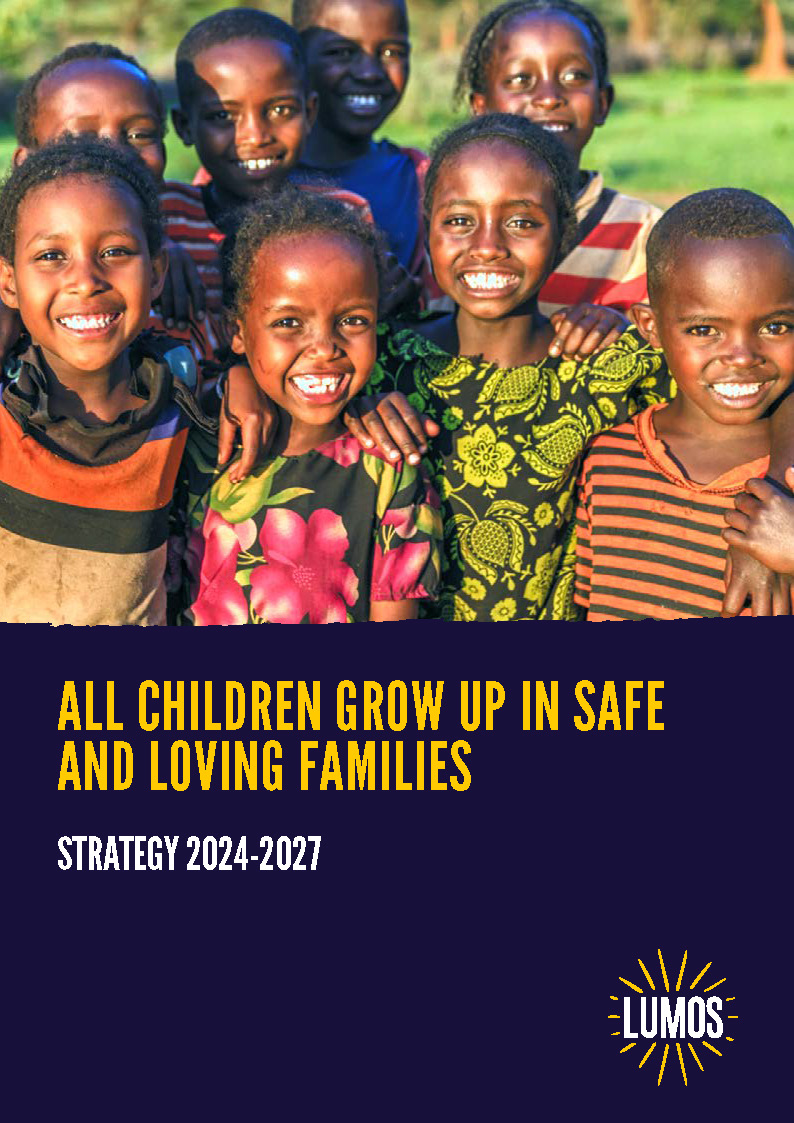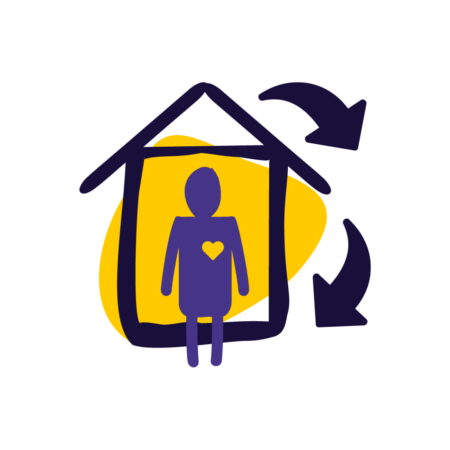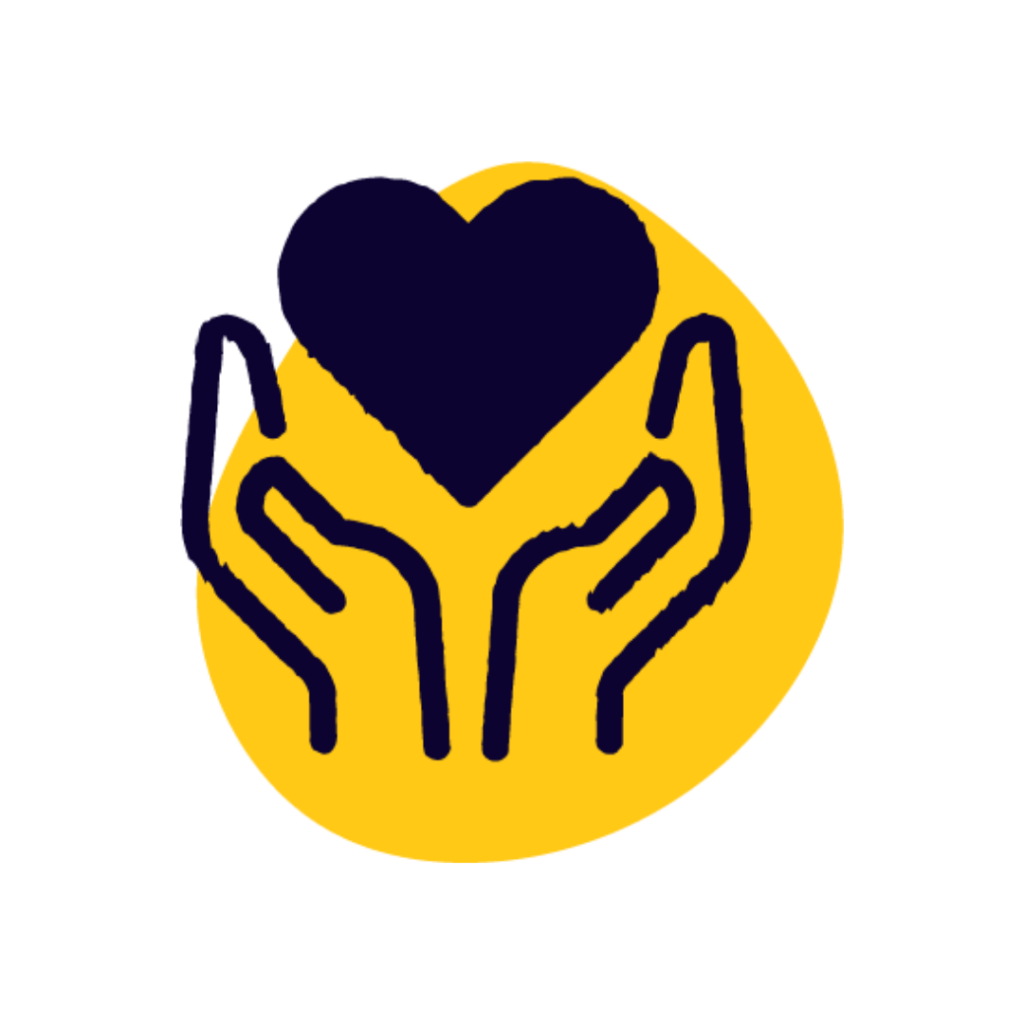Time for a change
When children get the care they need and are entitled to, they can thrive.
That’s the simple truth that drives all of our work at Lumos. We all have a responsibility to do what it takes to help every child reach their full potential, and create a better future for all of us.
All children need and deserve the same things to thrive: to grow up in the love and protection of their own families, or whenever that is not possible, a safe and stable home with consistent, loving relationships. Institutions like orphanages do not – and cannot – meet these essential needs.
Family settings can provide the consistent, loving relationships that nourish healthy development. Not only are institutions incapable of providing this, but they can also cause harm at a crucial stage of life. When a child experiences the severe and ongoing stress that is so common in institutions, this toxic stress can derail a child’s development and can lead to lifelong problems in physical and mental health.
Yet around the world millions of children continue to live in institutions – separated from their families and the communities which could help them flourish now and in the future.
Most children in institutions like so-called ‘orphanages’ have a living parent. But many have been separated from their families by poverty or conflict, or because they have a disability and their families or local services lack the resources to look after them.
It doesn’t have to be this way. Overwhelming evidence shows us a better way forward, and at Lumos, we are working with partners, children, and families to change the story.
Download our 2024-2027 Strategy

Our strategy has SIX priorities
To achieve a genuinely global impact we are working with partners and finding the most effective ways to share our decades-long expertise.

Prevention & reintegration
We’ll ensure families have the support they need to care for their children as this plays a pivotal role in preventing the separation of children from their families and supports the reintegration of children following family separation.

Strengthening child protection & welfare systems
We will partner with governments to achieve impact at scale in strengthening national child protection and child welfare systems, especially when seeking multi-sectoral, systems-level change.

Increasing care reform commitments
We’ll prioritise preventing children being separated from their families and family strengthening, advocating for the redirecting of funding towards family-based care, addressing the fragmentation of child welfare and child protection systems, shedding light on challenges faced by marginalised groups and engaging young people and families affected.

Amplifying engagement of impacted young people
We will support systematic, quality and ethical participation of children, young people and families affected to ensure they are more meaningfully engaged in the development of policies, practice, and implementation of programme that are undertaken on their behalf and impact them. This will be mainstreamed across each other strategic objective.

Cultivating a thriving organisation
By creating an environment where staff and partners can work together and develop high-quality projects, the better the outcome for all, including the children and families we support. This is led by our core values: always care, embrace collaboration, be passionate, be respectful and always strive for excellence.

Maintaining a finanically sustainable organisation
By maintaining a fiscally responsible organisation, we are able to work with our partners, networks and generous donors to deliver transformational and sustainable projects.
Our theory of change
Our mission
To realise every child’s right to a family by transforming care systems around the world.
How we we’ll do it ![]()
1. Prevention & reintegration
- Drivers identified and addressed
- Gatekeeping mechanisms and case management processes
- Increased alternative family-based care and family support services
- Training frontline professionals
2. Strengthening child protection & welfare systems
- Legal, policy and regulatory frameworks
- Funding and human resources (re) allocated and work force strengthened to enable care reform
3. Increasing care reform commitments
- Policies, programmes and funding
- Key partnerships
- Targeted advocacy
- Commitments to redirect funding
- Demonstrate impact of successful (demo)
country-level care reform - Evidence on related policy areas (e.g.
education and violence against children)
4. Amplifying engagement of impacted young people
- Children, young people and families with lived experience are meaningfully involved to enable their participation in care reform initiatives
Our theory of change
Our mission
To realise every child’s right to a family by transforming care systems around the world.
How we we’ll do it ![]()
1. Prevention & reintegration
- Drivers identified and addressed
- Gatekeeping mechanisms and case management processes
- Increased alternative family-based care and family support services
- Training frontline professionals
2. Strengthening child protection & welfare systems
- Legal, policy and regulatory frameworks
- Funding and human resources (re) allocated and work force strengthened to enable care reform
3. Increasing care reform commitments
- Policies, programmes and funding
- Key partnerships
- Targeted advocacy
- Commitments to redirect funding
- Demonstrate impact of successful (demo)
country-level care reform - Evidence on related policy areas (e.g.
education and violence against children)
4. Amplifying engagement of impacted young people
- Children, young people and families with lived experience are meaningfully involved to enable their participation in care reform initiatives
Outcomes
![]()
Unnecessary separation of children from their families is prevented, and separated children are (re)integrated into family-based care.
![]()
Strengthened national child protection and child welfare systems that support the rights and welfare of all children.
![]()
Increased commitments and action at national and global levels to accelerate high quality and holistic care reform.
![]()
Care reform efforts at national and global levels are informed and strengthened through the participation of children, young people and families with relevant lived experience.
Outcomes
![]()
Unnecessary separation of children from their families is prevented, and separated children are (re)integrated into family-based care.
![]()
Strengthened national child protection and child welfare systems that support the rights and welfare of all children.
![]()
Increased commitments and action at national and global levels to accelerate high quality and holistic care reform.
![]()
Care reform efforts at national and global levels are informed and strengthened through the participation of children, young people and families with relevant lived experience.
Children are at the heart of our work
We’re driven by the vision of a world in which all children grow up in safe and loving families. For nearly two decades, we’ve worked alongside governments, partners and communities to demonstrate how, together, we can make this a reality.
Through our four locally-led country demonstration programmes, we’ve helped develop services so that families can care for their own children at home and we’ve helped address the drivers of separation, enabling thousands of children in institutions to safely return home and preventing more from entering care. We’ve supported governments and civil society partners in at least 50 countries with training and technical support to lead reform initiatives.
Importantly, we’ve put children and young people with lived experience of institutions at the heart of our work. From helping to secure high-level commitments from policymakers to training social workers, including and empowering these young people has been integral to many of our milestones.
Our story so far
2006
Transforming Moldova
As the poorest country in Europe, Moldova had high rates of institutionalisation when we began working there, with over 11,500 children living in 67 institutions. Today, thanks to our work with government and civil society partners, the number of children in institutions has fallen by 90%.
2008
Training Czech professionals
Since we began working in Czechia, the number of children in institutions has fallen by a quarter from 10,400 in 2008 to 7,900 in 2019. The biggest reductions have come in residential care homes for people with disabilities. We’ve helped to train more than 9,400 social workers and professionals in the Czech care system.
2010
Reintegration in Bulgaria
We created innovative demonstration programmes in Dobrich and Varna to reintegrate babies and children with complex disabilities into family-based care. We supported and challenged the Bulgarian government to develop and implement a national action plan for reforming children’s services.
2013
Redirecting EU funds
Our advocacy helped change regulations governing European Structural and Investment Funds, leading to around €2.7 billion being allocated towards reforming care systems. The new conditions galvanised the transition away from institutions to family and community-based living, offering new opportunities to some of Europe’s most marginalised children.
2015
Shining a spotlight on Haiti’s orphanages
We assessed all orphanages in Haiti, revealing that only one in four was licensed to operate and finding evidence of abusive practices in 93%. The government stopped the establishment of new orphanages and urged donors to direct their funds towards family and community-based care.
2015
HIV care in Colombia
We worked with Fundamor, a Colombian NGO caring for children living with HIV, to transition from operating an institution to supporting family-based care. Thanks to training, guidance and funding from Lumos, all 52 children were supported to safely leave the institution to live with their biological families, foster families or in specialist arrangements.
2017
Launching youth advisory boards in Europe
In 2017, we launched national youth advisory boards in Bulgaria, the Czech Republic and Moldova to provide opportunities for young people to contribute directly to our governance and strategic direction, and engage and influence national government.
2018
Disability rights in Jordan
We worked with the government in Jordan to shape national legislation on the rights of people with disabilities, jointly developing a pioneering 10-year strategy on deinstitutionalisation for people with disabilities – the first of its kind in the Middle East. The strategy will transform the lives of the 1,471 people with disabilities in institutions and many others who have entered institutional care.
2019
A landmark in children’s rights
The UN General Assembly adopted the landmark Resolution on the Rights of Children, focused on children without parental care. Reflecting years of advocacy and recommendations made by Lumos and our partners, it emphasises the importance of growing up in a family environment, stresses the rights of all children to a family life, and opposes unnecessary separation.
2020
Ground-breaking research in the Lancet
Three major papers shedding light on the situation of children living in institutions were published in The Lancet – the world’s leading independent medical journal. We played a key role in co-authoring the reports and convening experts to support the research and the commission, which presents authoritative and comprehensive evidence of the scale of institutionalisation worldwide, and the harm it causes.
2022
National Care Reform Strategy, Kenya
Thanks to Lumos’s advocacy, technical expertise and guidance, together with UNICEF and other partners, we developed the National Care Reform Strategy in Kenya which was approved.
2022
Humanitarian aid, Ukraine
Responded to the basic needs of the most affected children and families in the war, by providing humanitarian aid, mental health and psychological support.
2023
ECD/ECI services, Moldova
As a result of our advocacy, a national plan to develop ECI/ECD services was developed and approved. This will decrease the number of children separated from their families and will improve child developmental outcomes and integration, especially for children with disabilities and developmental delays.
The rest of our story is yet to be told.
Become a part of our history.
“Imagine a world where every child is raised in a loving family with the resources they need to thrive.”
Lumos founder J.K. Rowling

 An estimated 5.4 million children are living in institutions worldwide
An estimated 5.4 million children are living in institutions worldwide